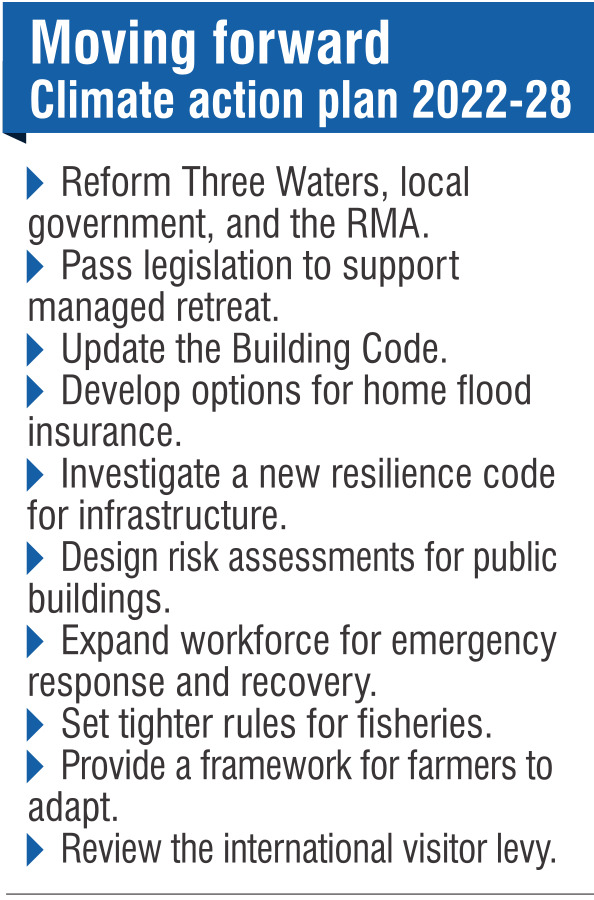
Mr Hawkins welcomed New Zealand’s first national adaptation plan, released by Climate Change Minister James Shaw yesterday.
However, he said "there’s still plenty to unpick".
The 2022-28 plan announced yesterday is the first in a series of six-year adaptation plans.
It outlines an array of work already under way, as well as new work that involves the co-operation of central government, local government, Maori and the private sector.
"Given the risks associated with sea level rise, we support any effort to minimise the harm caused by climate change and future-proof the environment, as well as our communities," Mr Hawkins said.
"Aotearoa New Zealand’s various communities face a variety of different challenges, and what works for South Dunedin will obviously look quite different than what works for Petone or Christchurch.
"We need to know more about the costs, who will pay and how much, but also about the role of local communities and councils in shaping their own destiny, working in partnership with other councils and central government."
Instead of ways to mitigate climate change — or reduce the emissions that cause it — the plan Mr Shaw introduced yesterday brings together 120 actions to adapt to the effects already being felt, and those still to come.
Reform projects already under way, including Three Waters, local government and the resource management reforms, are significant parts of the work outlined in the 196-page plan.
So too are forthcoming updates to the Building Code, developing options for home flood insurance, new standards for infrastructure and assessments for public buildings.
"We’re used to planning long-term for earthquakes," Mr Shaw said.
"We have systems and regulations in place to manage those risks.
"We have information that we need to be prepared.

Mr Hawkins said the missing piece at this stage was the forthcoming Climate Adaptation Act, expected to be in place by the end of next year.
That part of the resource management reforms will address "managed retreat".
A nuanced approach was needed, he said.
"It’s ... not as simple as sounding the retreat and walking away."
Taieri Labour MP Ingrid Leary said councils could use existing powers to drive climate-resilient development in the right places.
Moreover, governments could choose to collaborate with councils and support the visions of communities when invited to.
"I look forward to local leaders taking that step so that we can raise the scale of ambition for the future of South Dunedin beyond what is possible on a rate-funding basis."
Dunedin National list MP Michael Woodhouse said he did not support managed retreat as a short- or medium-term solution for South Dunedin.
Emotive statements after the 2015 floods "spooked a lot of people", he said.
"Until we have a holistic plan of action ... there is the risk that we will take a ‘piecemeal approach’ to this and sort of nibble around the edges of the problem.
"I think what we need to do is firstly make a clear commitment to South Dunedin as a place that we can live, work and play, identity the things that need to occur in order for that to happen, prioritise them, cost them, and then deliver them."
He Kaupapa Hononga Otago’s Climate Change Research Network co-director Associate Prof Sara Walton said livelihoods and workplaces had to be considered; often the smaller, less-resourced ones were hit the hardest.
Many small- or medium-sized businesses had little voice but provided essential jobs and were part of communities, she said.









